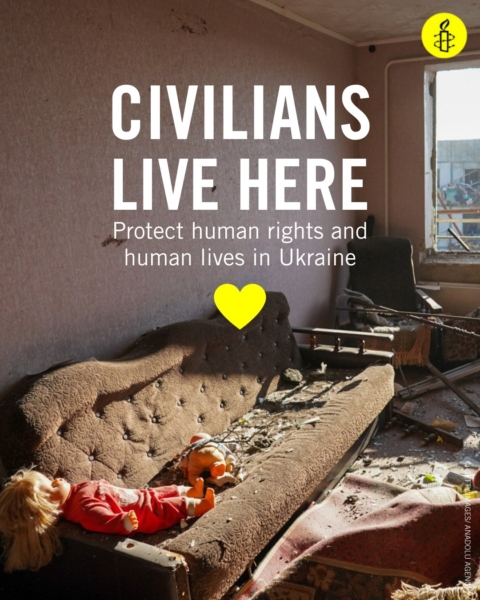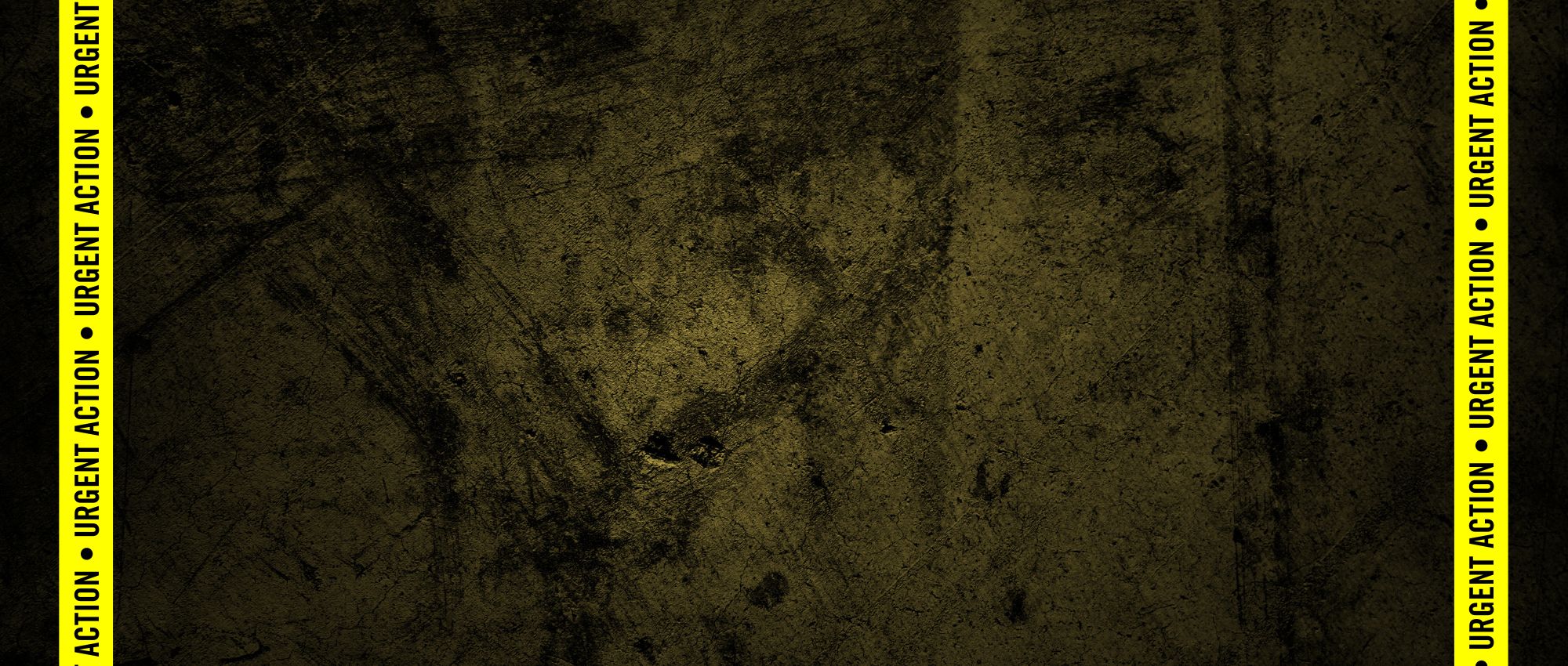
In less than a week, Russia’s invasion of Ukraine has triggered a massive human rights, humanitarian, and displacement crisis that could become the worst catastrophe in recent European history.
Since the invasion began on February 24, Amnesty has been documenting the escalation in violations of humanitarian and human rights law, including deaths of civilians resulting from indiscriminate attacks on civilian areas and infrastructure. The Russian military has shown a blatant disregard for civilian lives by using ballistic missiles and other explosive weapons with wide area effects in densely populated areas.
Amnesty’s Crisis Evidence Lab is analyzing digital evidence – including photos, videos and satellite imagery – and has verified several indiscriminate attacks. The deadliest was a ballistic missile strike on February 24 near a hospital building in Vuhledar, in Donetsk region, eastern Ukraine, killing four civilians and wounding ten more including health care workers. In another attack on February 25, a preschool in north-eastern Ukraine was hit with widely-banned cluster munitions while civilians sheltered inside, killing three – including a child – and wounding another child.
Strikes on protected objects such as hospitals and schools, the use of indiscriminate weapons such as ballistic missiles and the use of banned weapons such as cluster bombs, may all qualify as war crimes.
On February 28, the Prosecutor of the International Criminal Court announced the opening of an investigation, saying he was “satisfied that there is a reasonable basis to believe that both alleged war crimes and crimes against humanity have been committed in Ukraine.”
Russia’s invasion of Ukraine is a manifest violation of the United Nations Charter and an act of aggression that is a crime under international law. Russia’s aggression must not be allowed to push the world closer towards an abyss of violence, violations and insecurity.
Write to the Russian ambassador in Canada:
· Express concern that the Russian invasion of Ukraine has been marked by indiscriminate attacks in civilian areas, striking protected objects such as hospitals and schools. Indiscriminate attacks violate international humanitarian law.
· The continued use of ballistic missiles, cluster munitions, and other inaccurate explosive weapons causing civilian deaths and injuries is inexcusable.
· Call on him to use his power as Ambassador to urge the government of Russia to respect international law, protect civilians, and stop Russian aggression in Ukraine.
Send your messages by email, letter and postcards to:
Ambassador Extraordinary and Plenipotentiary
Oleg Vladimirovich Stepanov
Embassy of the Russian Federation
285 Charlotte Street
Ottawa ON K1N 8L5
Email: info@rusembassy.ca
Phone: 613 236 1413
Salutation: Your Excellency
WHAT ELSE YOU CAN DO
1. Send a message to the Minister of Defence in Russia and share the related online action.
2. If you are attending demonstrations, please keep your messaging focused on solidarity and protection of civilians. Here are some examples:
I Stand with Ukraine
Ukraine: you are not alone
Protect civilians in Ukraine
Russia: stop indiscriminate attacks on civilian areas
Russia: respect International Humanitarian Law
Russia: stop violating International Humanitarian Law
Russia: stop the aggression
You can also find some general solidarity graphics to share on social media or create signs and placards here. You can use the hashtag #StandWithUkraine.
3. We are monitoring this rapidly evolving crisis closely to verify and expose violations of international law by all parties. You can follow our updates on Twitter (even if you don’t use Twitter) at @amnestypress and @amnesty. Learn more about our monitoring here >>
FURTHER BACKGROUND
Feb 25: Russian military commits indiscriminate attacks during the invasion of Ukraine
Feb 27: Ukraine: Cluster munitions kill child and two other civilians taking shelter at a preschool
March 1: Russia/Ukraine: Invasion of Ukraine is an act of aggression and human rights catastrophe
February 28: Statement of ICC Prosecutor, Karim A.A. Khan QC, on the Situation in Ukraine




























